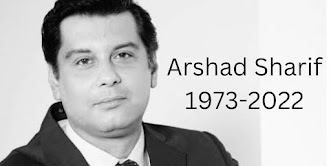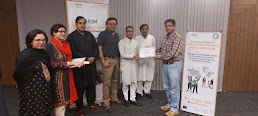Penny Appeal founder Adeem Younis shares the secrets behind the monumental success of one of Britain’s fastest growing charities. Stuck by personal tragedy with the death of his father when he was just six, ‘Small Change, Big Difference’ follows Adeem’s unlikely story, from growing up in poverty to becoming a dotcom millionaire and award-winning philanthropist.
MAHTAB BASHIR
mahtabbashir@gmail.com
03335363248
ISLAMABAD
A UK-based humanitarian charity organisation Penny Appeal has distributed an estimated 2.1 billion PKR in aid across Pakistan and has been instrumental in disaster relief, as well as launching income generating projects to support women and children in need.
 |
"I was six year old, when my Dad expired. I chose, at quite a young age, to be an observer, and to listen. More than anyone else, Mum showed me by example how to grow financially, one step at a time. She was very unusual in the community of Wakefield in the 1990's, being the sole breadwinner in a house with three kids and a poor parent. From her piecework sewing job to acquiring her car and thus her independence, renting a market stall and then opening her shop, I now realise that every step of her courageous progress involved calculated risk. Month after month, year after year, Mum was a case study in diligent entrepreneurial thinking."
|
Talking to this scribe, 42 year Adeem Younis, founder of UK-based humanitarian charity- Penny Appeal, in his typical Yorkshire accent told that the charity, has helped transform the lives of over 20 million people around the world and has worked in 60 countries.
Adeem, whose parents from Gujjar Khan, said that Penny Appeal have a diverse portfolio of relief projects in Pakistan which includes water wells, hunger relief, eye operations, care for the elderly, orphan homes and a number of excellent schools.
 |
The Scribe with the writer of "Small Change, Big Difference"
|
While talking about the ongoing projects in Pakistan, Adeem said that the charity has sought to prioritise projects that have a perpetual and multiplying impact on its intended beneficiaries. With cutting edge water waste management, for example, through its network of 9,334 kitchen gardens, the charity produces the equivalent of 65,000 meals every day. This is in addition to 18,645 Tube Wells, benefiting 216,020 individuals, 461 Deep Wells benefiting 105,200 individuals, and 27 Solar Powered Wells and Power Centers benefiting 32,600 individuals.
By focusing on sustainability, Penny Appeal has helped transform Zakat receivers into Zakat givers. In 2018, Penny Appeal provided livestock to vulnerable families and widows in District Vehari, Punjab Province and with the income, meat, and milk these animals provide, families- who were once struggling to feed their children, are now able to support multiple families beyond their own.
Penny Appeal established 31 mosques that are also used to teach over 6,700 children- a comprehensive Islamic Education.
 |
A group photograph with the founder of Penny Appeal
|
Adeem Younis said that "Pakistan is where our charity began. It's here where we draw our inspiration to serve vulnerable people and communities all over the world. We want to help people not just escape poverty but become agents of change in their own communities."
He said "we are inspired by the dignity, hope, and aspiration of every day Pakistanis, we founded a charity that would transform small change, that most of us take for granted, into a big difference for those who need it the most.
Penny Appeal is here, not to give hands-outs, but rather offer hand-ups, to help people escape the vicious cycle of poverty for good, he added. "During the Covid19- Pandemic, an estimated 2 million more Pakistanis were plunged into poverty. Penny Appeal has helped transform over 20 million lives across 60 countries since 2009," he said.
Adeem also told that over 9.7 m pounds (2.1 billion PKR) has been distributed in aid across the country, reaching countless Pakistanis living in poverty. "Everyday, an estimated 353,820 people across Pakistan benefit from Penny Appeal's water solutions almost 20,000 of tube-wells, over 400 deep wells and 27 sustainable solar powered wells with adjacent power centres," he said.
Penny Appeal's network of cutting edge waste-water management systems irrigate an estimated 9,334 kitchen gardens, providing the equivalent of 65,000 meals every single day.
Funded by Penny Appeal's Education First Appeal, Govt. Girls' Primary School Chah Karori Wala School in the Layyah District (Punjab) now, serves 200 girls of primary school age. "It is one of the 17 schools, Penny Appeal has funded and supported across Pakistan, directly reaching 5,400 students and teachers, opening 51 classrooms. A total of 31 Mosques in Pakistan have been built by Penny Appeal donors, directly serving 31,800 congregants, every remote region of Pakistan, Adeem said.
He further told that over 6,700 children benefit from an Islamic education hosted in these Mosques. "In 2018, Penny Appeal provided families in need across Vehari, a total of 168 pregnant goats. A few years later, the numbers have grown to 1,512 goats with more on the way," he said. The milk and meat the goats represent a significant income for these vulnerable families. Incredibly, many have gone from being Zakat receivers to Zakat givers, the CEO Penny Appeal said.
 |
Impossible spells I'Mpossible: Adeem Younis
|
Narrating his tale of mixed emotions of his single parent mother, Adeem Younis takes us behind the scenes, through the blood, sweat and tears that it took to beat the odds, escape the vicious cycle of poverty and help millions more, at home and abroad, do the same.
According to Dr. Husna Ahmad OBE, Secretary General, World Muslim Leadership Forum," it is a story of one Muslim man's journey describing both the thorns and roses along the path of building and sustaining a humanitarian charity."
Adeem Younis founded his first business- SingleMuslim.com, aged 17 above a pizza shop he worked for in Wakefield. What started as a leap into the unknown, grew into the world's largest Muslim matrimonial service, reaching over a million members in the UK and a further three million around the world.
In 2009, he founded Penny Appeal- an award-winning and Guinness World Record-holding humanitarian charity. His inspired vision, daring strategies and tremendous work ethic have enabled Penny Appeal to raise over 100 million pounds for good causes across the world.
 |
|
“Zero to £100 million in just 10 years? I’m in!”
James Caan CBE- BBC’S DRAGON’S DEN
|
Adeem was appointed an Ambassador of the Yorkshire Society seeking to improve cohesion amongst divided communities. He was decorated as the 2017 'NatWest Great British Entrepreneur for Good' and in the same year received a Highly Commended National Award from the Institute of Directors. He also won Entrepreneur of the Year in Wakefield Business Awards 2018 and won Charity Chair of the Year at the 2018 Third Sector Excellence Awards. And in 2019, he received the Prime Minister's Points of Light Award for outstanding individuals making a change in the community.
A renowned academician, scientist and a religious scholar Dr. Musharraf Hussain OBE DL, recommends this book to anyone interested in serving humanity, see a stunning portrait of a Godly servant. Anyone interested to understand how altruism produces amplified results, let him read Adeem's story of the Penny Appeal.














.jpg)





.jpg)





